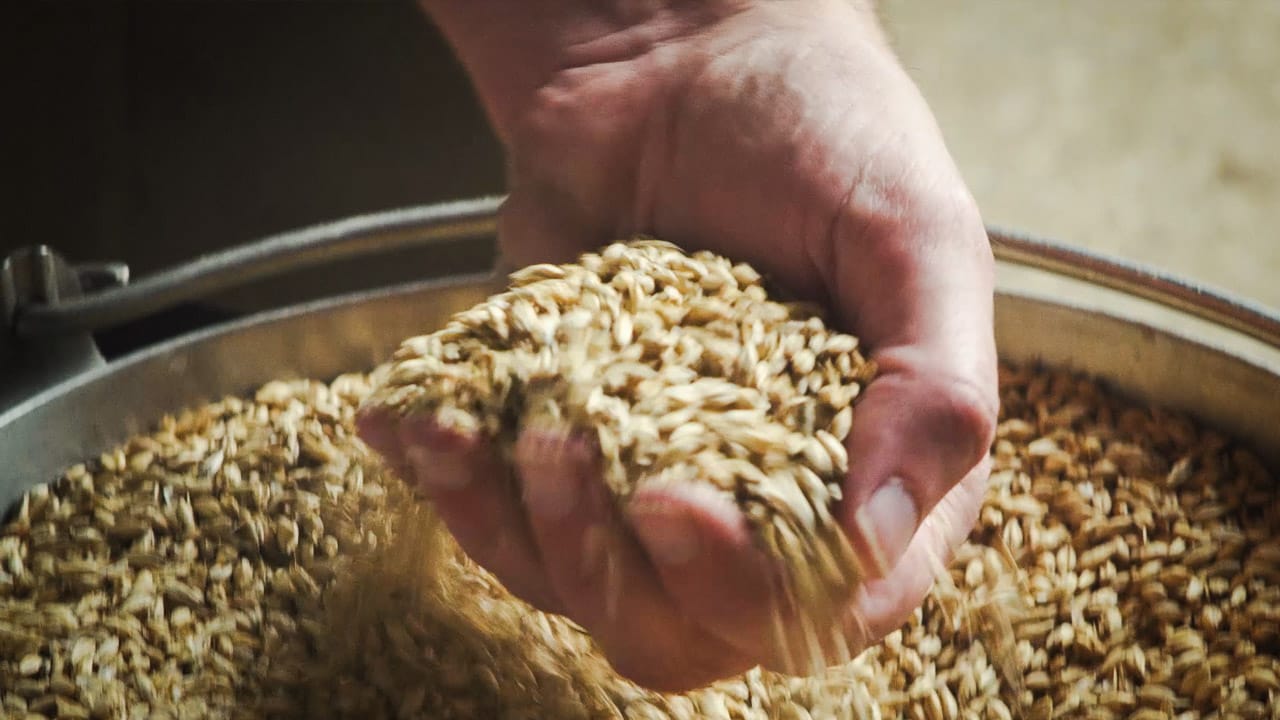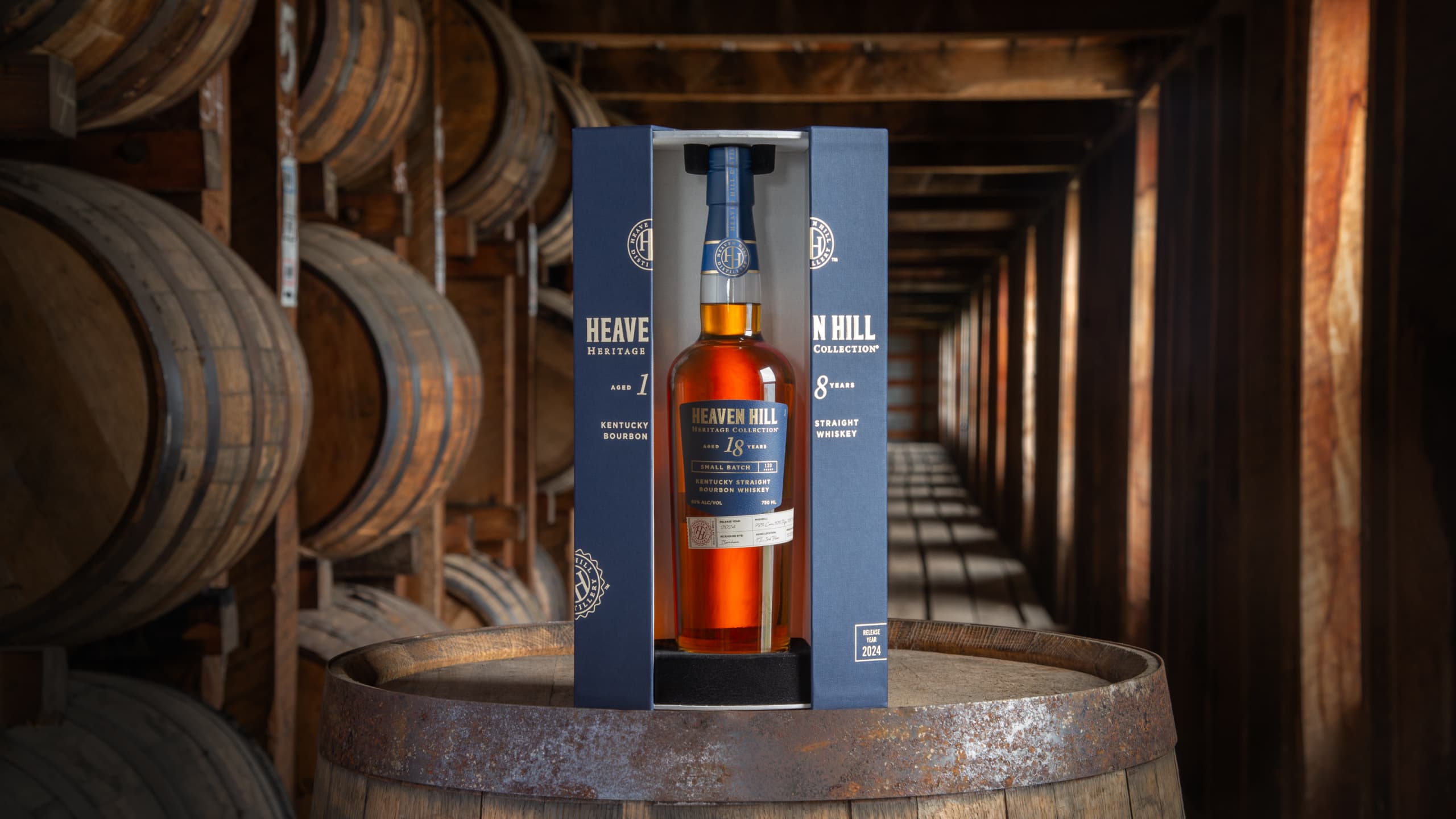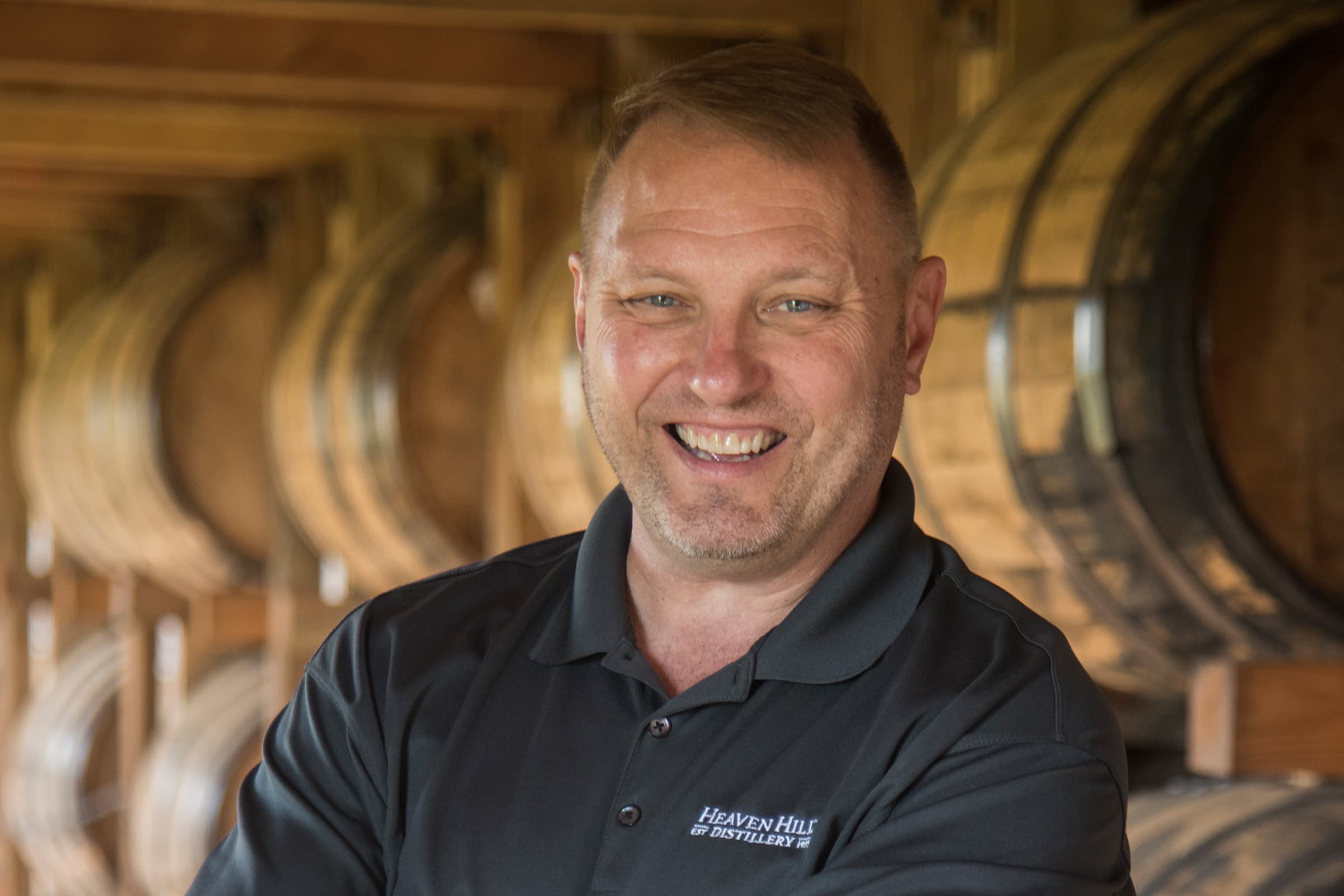The idea that some view whiskey making as an art likely confounds newcomers to distilleries—buildings crammed with machines, hissing stills and moaning grain grinders surrounded by a metal web of indeterminate plumbing. Equally unromantic is the fact that modern spirits making doesn’t happen without the inflexible sciences of chemistry, engineering and computer programming.
Asked where the inspiration of art lies in such a setting, Heaven Hill Distillery Master Distiller Denny Potter allows that it might be visible only to the knowledgeable insider. “Sure, it’s mechanical, it’s loud, it’s hot, it’s all that,” Potter says. “But to the people who work in this business, there’s an art to every part of distilling.”
Art by a Different Name
Every job requires the knowledge of a craft, Potter says, and the mastery of that craft is what makes it an art, along with a combination of knowledge and deep experience.
“Just in distilling, you’re dealing with different mashbills and innovation on those mashbills,” he begins. “Then you have to have the skill to know what to do when things go wrong. And that is all before even thinking about the art of barreling, aging, and mingling.”
While distilling exerts have control over the distilling process, nature is the boss of nearly every aspect of aging. Heaven Hill’s barrel suppliers adhere to set standards that yield desired flavor profiles, yet years-long rests in oak amid ambient temperature warehouses determines the final outcome.
“Here’s a great example: Since our bourbon-rye mashbill is what we use for Evan Williams, Elijah Craig and Henry McKenna, when we put up those barrels, we don’t know which they’ll be until they’ve been aged,” Potter says.
“It takes decades of practice for one to know which taste profiles are likely to come from each warehouse,” Potter says. “It is mind-boggling to think about knowing where to get what you need out of such a massive supply.”
Mingling of Minds and Liquids
Potter understands the arguments of those who believe mingling and single barrel selection are highest arts of whiskey making, but he cautions giving too much credit to one group at the end of the process.
“Because that’s what consumers taste, that’s super important, of course,” says Potter. “And the skills required to do that correctly time after time, you can’t take anything away from that.”
“But to focus on just that aspect overlooks the art of managing all the people and process that get it to that point. Motivating everyone to keep moving forward and stay focused on the consistency our products are known for, I say that’s an art of its own.”
Well Mentored
Potter is an anomaly among some older distilling peers who learned the job from the ground up at their fathers’ sides while working for one distillery until retirement. Armed with biology and business degrees, Potter worked his way into multiple posts at Maker’s Mark before taking on positions at Jim Beam and Cruzan Rum. When he joined Heaven Hill, he served alongside Master Distillers Parker Beam and son Craig Beam before becoming Master Distiller four years ago.
He’s incredibly grateful for the time spent beside some of the world’s most prominent distillers, but he says that hands-on education goes much deeper.
“I’ve gotten to work for and with some phenomenal families,” Potter says, referring to the Shapiras and Beams at Heaven Hill, the Noes at Jim Beam, the Samuels at Maker’s Mark and the Nelthropps at Cruzan. “To have generational operations like those, you have to have a vision and a great business model, but, damn, you’ve also got to have good people. I’ve been really lucky to have access to them.”
Under the Radar
Despite being known as the face of Heaven Hill whiskeys, Potter likes the fact that he’s rarely recognized near his home outside Bardstown, even at liquor stores nearby.
“I’d never make mention of that if someone doesn’t know me,” he says. “But it’s kind of funny when I come to the counter with a bunch of our brands, and the guy says, ‘Man, you really must like Heaven Hill!’”
While many assume his liquor cabinet at home is a trove of whiskey treasures, he disappoints those who envision it packed with rare Elijah Craig 23-year-old or a cache of Parker’s Heritage Collection bottles. The bottles in his cabinet are likely the same ones occupying his fans’ shelves: Pikesville Rye, Elijah Craig, and Henry McKenna.
And how does he drink them? (Spoiler alert: nothing fancy.)
“I know how to make whiskey, but I’m not a mixologist,” he says. “Beyond having it neat or on the rocks well, you don’t want me to do much outside of that.”
Which is why he lets bartenders choose what to drink when he visits accounts.
“If it’s a good mixology account, I probably want a cocktail they make with Rittenhouse Rye or Elijah Craig Small Batch,” he says. “I let them choose what suits the occasion.”
*Denny Potter served as Master Distiller 2014-2018
























